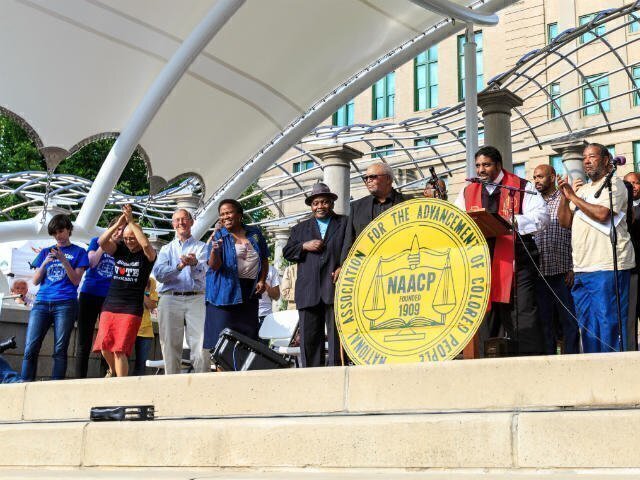
This commentary is part of a blog symposium honoring the 50th anniversary of the Voting Rights Act. Other contributions come from Roger Clegg, Kermit Roosevelt, J. Christian Adams and Brianne Gorod.
Fifty years ago this week, President Lyndon Johnson signed the Voting Rights Act, one of the most important pieces of civil rights legislation in the United States. The Act immediately boosted the voter registration rates of African-American voters in the South, who suffered decades of official discrimination in voting well after the passage of the Fourteenth and Fifteenth Amendments, which legally barred such discrimination. Later, as the federal government enforced the Act, and as Congress repeatedly renewed and strengthened it, the number of minority elected officials soared, and turnout rates continued to grow. Today, however, as some states pass new, restrictive voting laws, the Act’s continued vitality and relevance is in serious question, as the Supreme Court cuts back on the Act and as Congress fails to respond.
Consider, for example, the current trial in North Carolina over H.B. 589, a 2013 law the state passed which rolled back a number of voting protections. Among other things, the law imposed a strict voter identification requirement, eliminated same-day voter registration, cut back the number of days of early voting from 17 to 10 days, eliminated preregistration of 16- and 17-year-olds, and stopped counting ballots cast by voters in the wrong precinct, even if that happened because of poll worker error.
To begin with, North Carolina never could have passed such a law until 2013, because 40 of its counties used to be covered under Section 5 of the Voting Rights Act. That provision required states and jurisdictions with a history of racial discrimination in voting to get permission from the federal government before making any changes to their voting rules. To get permission, North Carolina would have had to demonstrate that its law would not make protected minority voters worse off. There is no way that H.B. 589, which rolled more restrictive voting practices into a single bill than I have ever seen, would have been precleared by the federal government.
But in 2013, the U.S. Supreme Court decided Shelby County v. Holder, holding that the formula to decide which states were subject to preclearance was based on outdated data, and therefore unconstitutionally exceeded Congress’s power to control state voting laws. Since that time, Republicans in Congress have objected to a new coverage formulas which could be tied to current conditions and satisfy the Court’s Shelby County standard. The demise of Section 5 freed North Carolina to pass H.B. 589.
Podcast: Voting rights on trial in North Carolina
Civil rights activists and the United States Department of Justice therefore are raising other claims, including claims under Section 2 of the Voting Rights Act, to try to block North Carolina’s law. Section 2 was very successful in requiring the creation of majority-minority voting districts, and it has led to a great increase in the number of minority elected officials in Congress, state legislatures, and on local government bodies. But so far Section 2 has not been successful in attacking “vote denial” claims, such as that brought in North Carolina, and there is a fair prospect that the Supreme Court, if it confronted the question, would hold that most vote denial claims fail to satisfy Section 2’s standards. And there is no good prospect Congress will strengthen Section 2 any time soon.
That’s too bad, because it appears that North Carolina had no good reason for passing H.B. 589. Good social science evidence shows that such laws are unnecessary to prevent voter fraud or instill confidence in the electoral process, the two reasons the state has put forward for its law.
The real reason North Carolina passed this law was to help Republicans get elected in the state. It is no coincidence that the expansion of voting rights in North Carolina happened when Democrats were in office and contracted when Republicans took over the state government. Both Democrats and Republicans believe that making it easier to register and vote will help those voters who tend to vote Democratic—especially those voters protected by the Voting Rights Act.
In short, the Voting Rights Act has been a tremendous success in securing minority voting rights. It is an accomplishment all Americans should applaud. But the Act is in need of a major upgrade, and Republicans in Congress, who once strongly supported the Act, are ignoring the call.
Richard L. Hasen is Chancellor’s Professor of Law and Political Science at UC Irvine School of Law and author of the forthcoming book, Plutocrats United: Campaign Money, the Supreme Court, and the Distortion of American Elections. He writes at electionlawblog.org and is @rickhasen on Twitter.
Editor’s note: Commentaries appearing on Constitution Daily reflect the opinions of their authors, and not those of the National Constitution Center.







